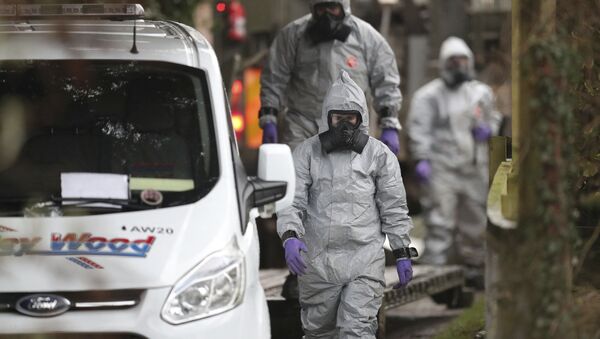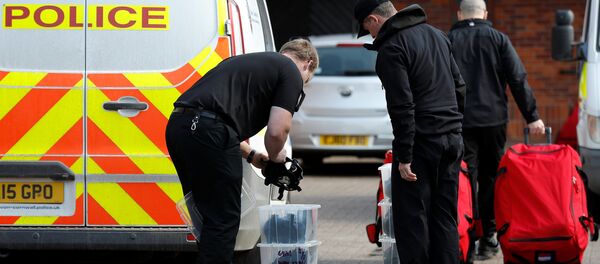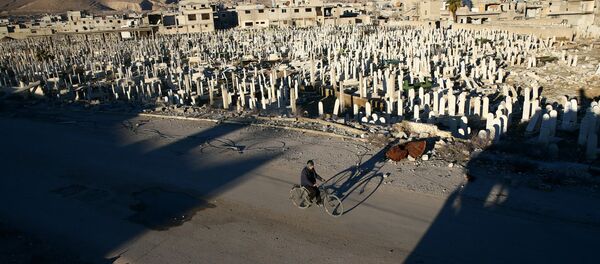"Today it is obvious that the case of the Skripals, the economic sanctions, and the story of chemical weapons produced and used in Syria, as well as subsequent missile strikes on the country, are all interrelated processes and events that are being directed by the United States and their so-called allies. And any sane person, having analyzed all the available information, it seems to me, will come to a similar conclusion," Russian Presidential Envoy to the Volga Federal District, ex-head of the State Commission for Chemical Disarmament Mikhail Babich said in an interview with Sputnik.
The Organization for the Prohibition of Chemical Weapons (OPCW), which provided and controlled the work of inspectors, is responsible for the destruction of chemical weapons in Russia, according to Babich. The OPCW is demonstrating "unusual modesty" in assessing Russia's accusation in the case of the Skripals, although it previously confirmed the complete destruction of chemical weapons in Russia, he said.
"Legally, this is primarily the responsibility of the OPCW. For the entire period of the destruction of chemical weapons, and it amounts to almost 20 years, the OPCW has conducted 811 international inspections. Each of the seven facilities was inspected from 100 to 170 times during this period… this is an answer to the question of whether something could have gone unnoticed, not controlled, and whether someone could have shut out something. It's impossible," he emphasized.
READ MORE: Russia Expects Answer From OPCW About of BZ Toxin Presence in Skripal Case
Between 2002 and 2017, about 40,000 tons of chemical weapons were destroyed in Russia. Seven modern production complexes were built in seven regions of Russia, especially for the liquidation. All the technologies used and all the unique equipment were developed by Russian scientists and engineers.
"During that period about 20,000 munitions out of the total volume went into a state of emergency when a munition can be triggered at any second, and the poisonous substance behaves quite unpredictably," the ex-head of the State Commission for Chemical Disarmament noted.
In Salisbury, the UK, on March 4, ex-GRU officer Sergei Skripal who had been convicted of espionage for the UK and his daughter Yulia were poisoned by a nerve agent, which provoked a major international scandal. London has claimed that Russia was involved in the poisoning of the Skripals with the substance A-234, Moscow has categorically denied it. The incident has resulted in the expulsion of both Russian and British diplomats from the respective countries, with many Western countries supporting London.
READ MORE: Moscow Considers New US Sanctions Illegal International Economic Takeover
In early April, reports by several Syrian opposition media outlets, citing militants claimed that the Syrian Army had allegedly used chlorine in the town of Douma and had killed up to 70 people. Following the reports, a number of states, including the US, accused Damascus of staging the attack, with the latter denying all the allegations.
US President Donald Trump has accused Russia and Iran of backing Bashar Assad, calling him an "animal."
On April 14, France, the US and the UK launched missile strikes against government targets in Syria.






